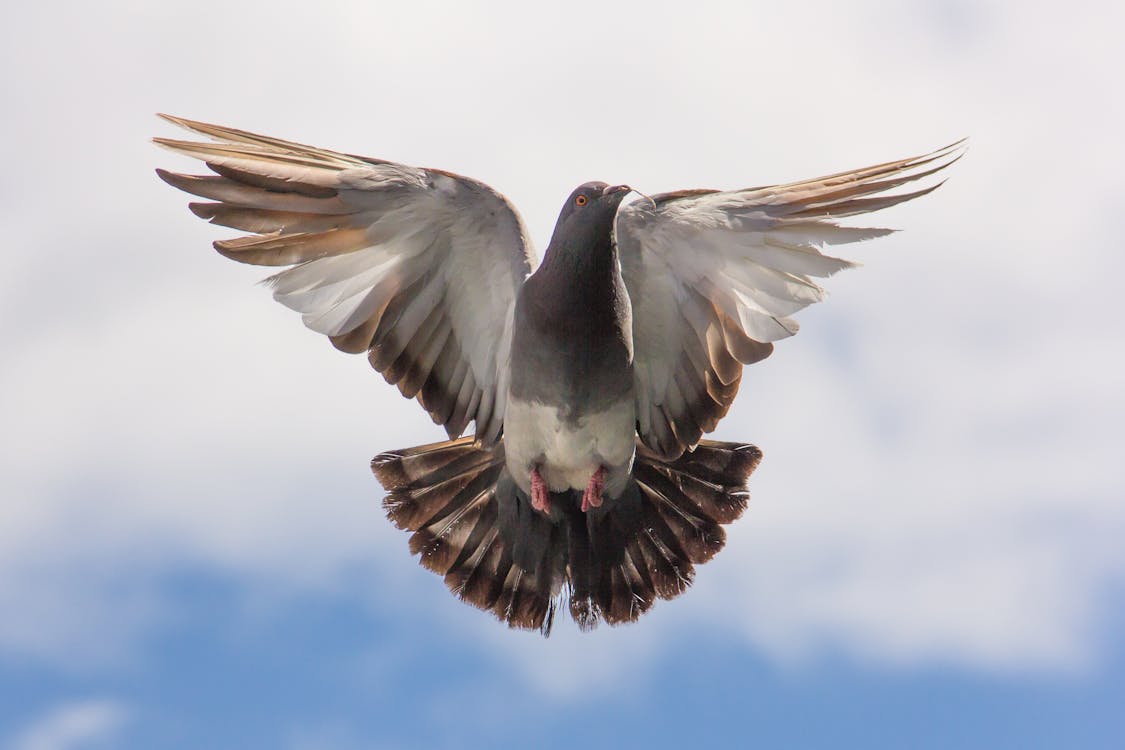
What happens if dove eggs don't hatch? Bird reproduction captivates the interest of nestwatchers. Unfortunately, not all eggs will hatch successfully; this can be both disillusioning for observer and bird alike.
Mourning dove pairs are fiercely protective of their nests and eggs. If something threatens them too greatly - such as competing birds looking for food, animal predators raiding it or humans getting too close - then they will abandon the nest in protest and abandonment will occur.
Fertility Issues
Bird reproduction is an astounding process to witness; unfortunately, however, not all dove eggs hatch successfully due to factors like infertility and extreme weather conditions.
Dove eggs typically need 14-21 days for incubation, depending on the species of dove involved. They must be kept at an even temperature and regularly rotated so as to prevent overheating as well as prevent their embryo from sticking to their shells.
If no sperm was present when an egg was created, it will remain infertile and won't hatch. This phenomenon is especially prevalent among wild birds; often unfertilized eggs remain hidden among fertile eggs for several weeks before finally being noticed during hatching cycle.
Also read: What Material Can Dogs Not Smell Through? 5 Amazing Materials Explained.
At any rate, it's essential to remember that any disturbance of nesting areas can interfere with incubation processes and can interrupt incubation altogether. Therefore, it is wise to leave nests alone and view them from a safe distance if located in your backyard. If necessary, replace real eggs with fakes so as to reduce stress for either the hen or abandonment by the dove; additionally avoid touching nesting doves with your hands as germs transmitted can prevent their eggs from maturing properly.
Broken or Cracked Shell
Breaking or cracking an egg exposes its embryo to bacteria that could infiltrate and infect it during hatching, possibly killing off its chick. Furthermore, moisture and nutrients escape through cracks in its shell which prevent it from incubating correctly; to protect against this happening make sure the egg doesn't become overwet or has cracked shell. To minimize risks ensure egg does not remain too moist while protecting its shell against cracking.
If your egg seems salvageable, here's an easy and quick fix you probably already have in your home: wet a cloth or washcloth with warm water and wring it out so it remains damp but not saturated before wrapping it around the egg to help maintain moisture and prevent drying out and shrinking, which could cause its membrane to rupture further.
When an egg is ready to hatch, a chick will peck at its sides with its egg tooth until he or she creates an opening in the shell with which to breathe air that has come in through this hole. If this hole is too small for it to work effectively, either trying to force its way out through or drowning from residual wet coating left over after hatching has taken place due to ineffective humidity control during incubation, chick may die trying to escape or drown from wet coating left on egg after it has hatched due to improper incubation setting or poor humidity control during incubation process.
Genetic Disorders
Dove eggs that fail to hatch can often be linked to genetic disorders. These conditions affect all embryos within an egg and often result in their deaths during pipping or shortly afterwards. Hens who suffer from diseases like Avian Influenza, Newcastle Disease or Infectious Bronchitis may also encounter difficulties hatching their eggs and chicks successfully.
Diet can have a huge effect on the success of her eggs. Without enough calcium intake, eggs become abnormally soft and unsuitable for chick development - doves should ingest crushed oyster shells regularly in order to avoid this situation.
Genetic disorders that may harm dove eggs include deficiencies of vitamin D, thiamin, riboflavin or niacin. Signs of deficiency range from subtle issues like an irregular or enlarged yolk to severe conditions in which chicks exhibit malpositioned limbs or have defective upper beaks; it is possible to hand raise gallinaceous species like doves; however they require specific diet requirements and it's difficult teaching them how to care for themselves in nature; additionally it is illegal for owners not licensed wildlife rehabbers to possess them unless licensed wildlife rehabber.
Predators
Hatching of bird's eggs can be an exciting and delicate process, yet not every egg successfully hatches in nature. Unfortunately, this can be discouraging both to birds themselves as well as observers watching on from a distance; but there are reasons why dove eggs may fail to hatch and solutions available that could prevent this in future.
Mourning doves are strict seed eaters, yet still need extra protein in their diet. So they rely on something called crop milk - produced in adult doves' crops and fed to their young doves - which contains proteins, fats and other vital nutrients needed for strong immune systems development in baby doves.
Dove eggs might fail to hatch due to female doves being unable to fertilise them with enough sperm from male doves; this may occur if their individual hormone levels don't match, or if the female doesn't receive sufficient nourishment.
Dove eggs might fail to hatch for various reasons, including being hunted by predators. Mourning doves are particularly vulnerable to terrestrial predators such as dogs, cats and raccoons; lead poisoning from hunters shooting can also pose a danger. Mourning doves often engage in antipredator behaviors such as fake injuries on the ground and calling loudly enough that predators cannot detect their nests.

Post a Comment